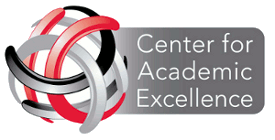Collaborations for Empowerment and Learning: Out of the Box Mentoring
Location
Dolan School of Business Dining Room (104A)
Start Date
30-5-2013 5:15 PM
End Date
30-5-2013 6:30 PM
Session Type
Poster Presentation
Description
There is a growing body of literature focused specifically on faculty mentoring in institutions of higher education. The literature describes two dominant models of mentoring. The first is a dyadic model where senior faculty members are paired with junior faculty members to pass down their wisdom and advice. The second prevailing model is more collaborative; it promotes co-mentoring through reciprocal relationships with a two-way exchange of knowledge and support. The authors of this proposal sought to develop a mentoring system that reflects key features of the second model - collaboration, responsiveness, reciprocity and inclusiveness. The proposed poster session builds on the second model to describe a third conceptualization of mentoring –a community of practice for mentoring. In a community of practice, members learn through joint engagement in and contribution to the community. Applying this paradigm to mentoring, mentoring arises out of faculty’s joint engagement in shared academic tasks. In a community of practice that mentors, ideally everyone mentors and everyone gets the mentoring they need to increase their competence for a variety of purposes, including tenure, promotion, reflection, and rejuvenation. Visitors to our poster presentation will learn about a new model of mentoring that has the potential to transform a workplace, empowering all those who work there by helping them to feel supported and valued. Specifically, they will learn the characteristics of a community of practice that mentors; the benefits of participating; and our learnings from our initial efforts to implement such a model.
Topic Designation
Mentoring
Presenter Bio(s)
Paula Gill Lopez, Ph.D., Associate Professor, Psychological and Educational Consultation, Director of School Psychology, Fairfield University.
Primary Contact: pgilllopez@fairfield.edu
Patricia Calderwood, Ph.D., Professor, Educational Studies and Teacher Preparation, Director of Center for Academic Excellence, Fairfield University.
Emily Smith, Ph.D., Associate Professor, Educational Studies and Teacher Preparation, Director of Secondary Education, Fairfield University.
Faith-Anne Dohm, Ph.D., Professor, Psychological and Educational Consultation, Director of Applied Psychology, Fairfield University.
Collaborations for Empowerment and Learning: Out of the Box Mentoring
Dolan School of Business Dining Room (104A)
There is a growing body of literature focused specifically on faculty mentoring in institutions of higher education. The literature describes two dominant models of mentoring. The first is a dyadic model where senior faculty members are paired with junior faculty members to pass down their wisdom and advice. The second prevailing model is more collaborative; it promotes co-mentoring through reciprocal relationships with a two-way exchange of knowledge and support. The authors of this proposal sought to develop a mentoring system that reflects key features of the second model - collaboration, responsiveness, reciprocity and inclusiveness. The proposed poster session builds on the second model to describe a third conceptualization of mentoring –a community of practice for mentoring. In a community of practice, members learn through joint engagement in and contribution to the community. Applying this paradigm to mentoring, mentoring arises out of faculty’s joint engagement in shared academic tasks. In a community of practice that mentors, ideally everyone mentors and everyone gets the mentoring they need to increase their competence for a variety of purposes, including tenure, promotion, reflection, and rejuvenation. Visitors to our poster presentation will learn about a new model of mentoring that has the potential to transform a workplace, empowering all those who work there by helping them to feel supported and valued. Specifically, they will learn the characteristics of a community of practice that mentors; the benefits of participating; and our learnings from our initial efforts to implement such a model.


